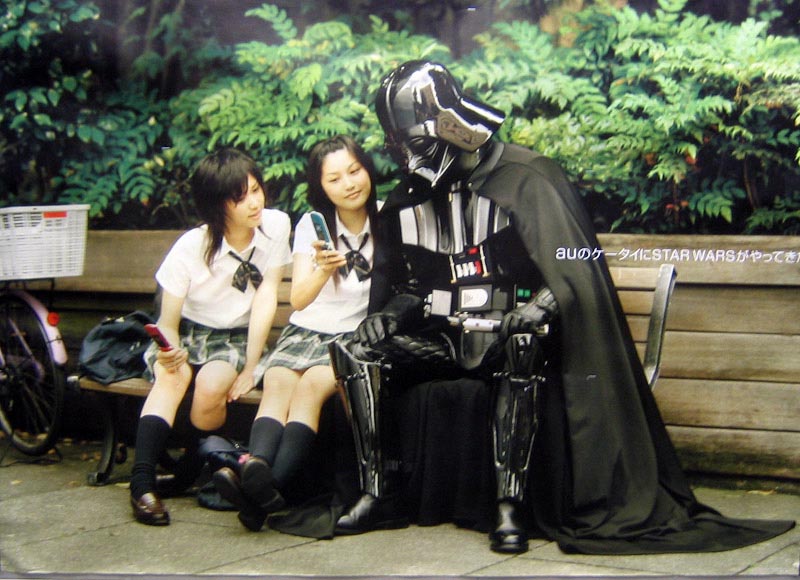Madame Holdsworth
I first met her in August of 1991. I was the epitome of puberty. It was my first day of junior high. Central Junior High: the school where racially motivated fights were more common than pep rallies; the school where thirteen-year-olds huffed paint in the bathrooms and on the bus; the school with a constant police presence eight years before Columbine. According to legend, the seventh graders were thrown over the balcony if they stepped out of line. I was 12 and dead shy.
I walked into the classroom and sat at the empty table in the corner. She stood by the chalkboard looking the students up and down as they filed in. The bell rang and she started calling role. “Let me know if you have a nickname,” she said. She would call Robert, and even though I went by Bobby, Robert would have to do. I would not correct her. I could not. I was stiff with a twisted gut.
“Robert?” I raised my hand and she looked over. She kept looking… and looking. Why wasn’t she looking for the next name to call? I looked away. I didn’t know else what to do. She put her spiral book and pen down and walked over to my corner.
“Robert, what do you have in your mouth?” Six days prior I had 4 teeth pulled in preparation for braces; “We have to make room in your mouth,” said the orthodontist. “Nothing, Ms. Holdsworth.” I wasn’t lying. My cheeks were swollen, but I didn’t want to tell her why. Not with all those nosey faces listening and studying. “Go to the bathroom and spit out whatever it is that you have stuffed in your cheeks.” “I really don’t have anything in my mouth. I swear.”
My face was hot. She ordered me out of the classroom. Finally I could tell her the truth. I did, but she wouldn’t believe me. “I know you have a dip in your mouth, now go spit it out!”
It was the first time I had a good look at her. Her face was thin and scarred. Her hair was sparse, frayed black wire. Shiny braces covered a mouth of twisted teeth. Her frail body limped along on skinny legs, one of them in a cast. She was a witch.
As I found out years later, she had been hit by a car while riding her bike through the streets of Paris early that summer. The impact sent her into a coma. Somehow she recovered enough to teach a few art and French classes that fall. She knew the students at that school and, considering her physical appearance, must have prepared for the worst: name calling, mockery – and chewing tobacco. I hated her. I knew she had used me to prove how tough she was and I hated her for it. I didn’t know about her accident and I didn’t care. I hated her guts. I wanted to stuff her in my cheeks and spit her out all over the dirty hallway floor.
The next year I wanted to take a French class but knew she was the only teacher. Against my better judgment, I signed up for the class. As it turned out, her wicked ways had lessened—almost ceased. Her hair filled out and softened. Her teeth had found their homes and lost their gleaming friends. The scars on her face had faded, revealing a soft, almost sweet smile. And best of all, I was invisible. I enjoyed complete anonymity while conjugating verbs. I was free to practice the front rounded tense vowel. We didn’t have to give her our nicknames the first day of class. We were assigned French names. I was the French Robert, pronounced “row-bear.” I don’t think she remembered my swollen cheeks, which helped me forget—so I slowly, and silently forgave her. My secret pardon. “Je vous pardonne.”
When I started high school Ms. Holdsworth transferred to the same school. They needed an art teacher and she accepted the position, presumably to get away from the tensions of Central. I took her class all three years. It was sometime during those years that I learned about her accident. I also heard that she had gone through a divorce the same year.
It made me think about the lives people live. I thought about the different turns people make and the places those turns lead—and how they stack up like an airplane hanger full of boxes, overflowing with mounds of paperwork. It’s impossible to wade through all the pages and understand them. They belong to someone else. They were built on experiences only one person can understand—miles and miles of tiny flashes, moments that make up someone’s life. Maybe those flashes were flooded with scenes of Paris in the summer, slowly peddling through the parks and streets. Maybe she stopped to buy a small framed painting from a street artist. Then on to the bakery for some fresh bread and herbs. She was going to make a beautiful dinner.






